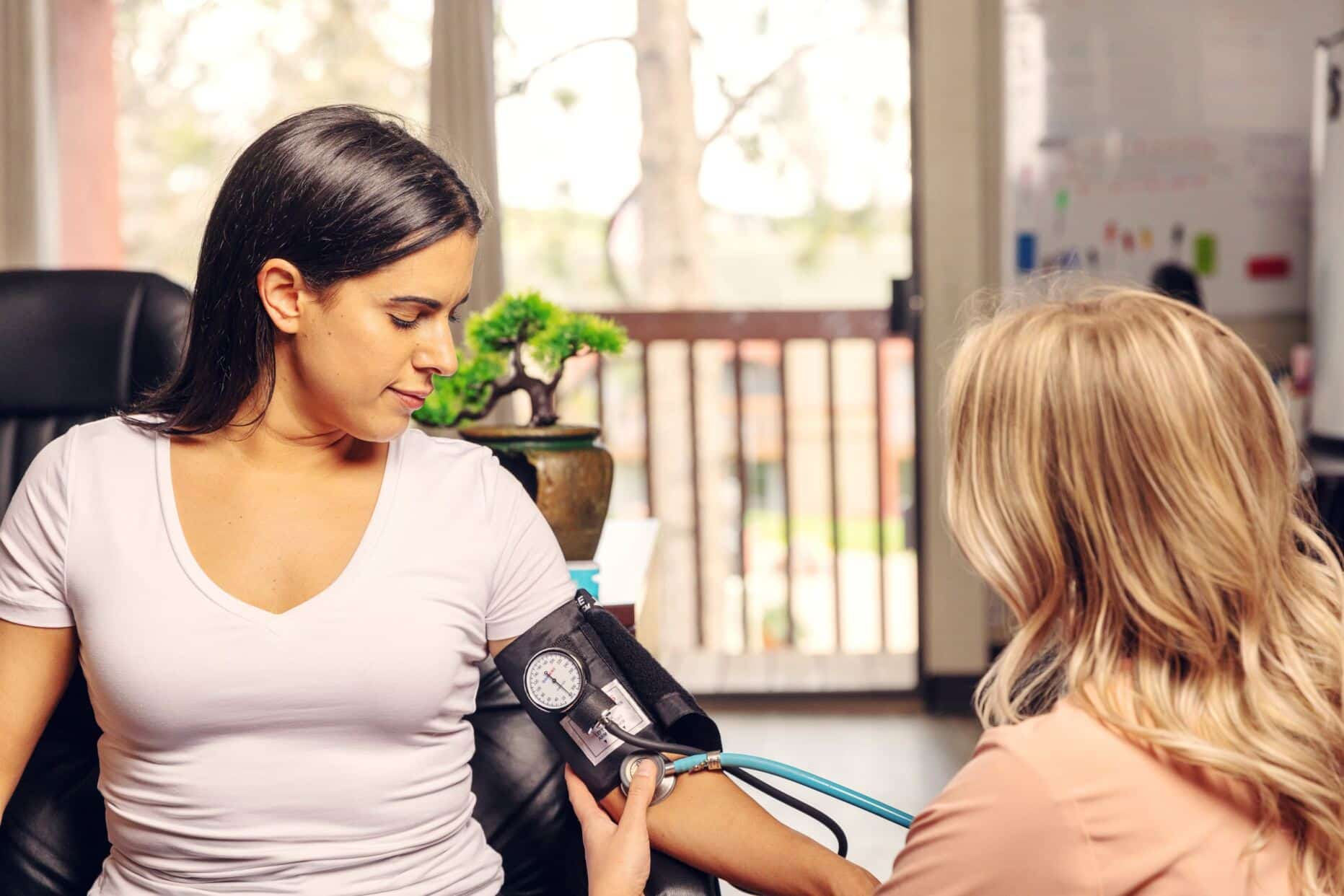The use of study drugs has been on the rise in recent years. Popular among college students, these study drugs are said to boost mental function. Are they really helpful, or are there drawbacks in using them? Read to find out more.
Often known as smart drugs, prescription medications such as Adderall and Ritalin are used by college students to help them ace exams and finish projects. Study drugs in college are becoming more common. An increasing number of people are admitting that they’re using such stimulants at least once in the last twelve months. Here are some interesting facts about the study drugs college students use:
Study Drugs Statistics
- A survey of 10,000 students revealed that 14% have used study drugs in 2017.
- The use of smart drugs rose 5% from 2015-2017.
- The most common drugs used by students to study are the medications Adderall, Ritalin, and Provigil (modafinil) and street drugs such as cocaine.
- Treatment practices for attention deficit and hyperactivity disorder (ADHD) in the United States have made prescription medication use widespread and has led to medication misuse.
When Caffeine Is Not Enough
There are various reasons why some people are compelled to use study drugs. Expectations for many students in the modern-day classroom can sometimes cause stress. According to an article in the Washington Post, a teacher who took on the responsibilities of students was shocked by how many requirements pupils needed to fulfill in a given week.
When assignments pile up, students forego sleep and sometimes feel that drinking coffee or energy drinks isn’t enough. Some people are already numb with the sleep-suppressing effects of caffeine, making it difficult to stay awake. They may begin using study drugs like Adderall to stay alert while pulling all-nighters. Other reasons why these medications are popular among the college crowd are the effects they seem to have:
- Increased focus
- A boost of energy despite a lack of sleep
- Better flowing thoughts
- Improved learning
Note that these effects are only based on perceptions and informal experiences. Scientific studies have not proven the benefits of study drugs in learning, memory, and mental alertness.
What Are Different Types of Study Drugs?
Smart drugs or study drugs are commonly used as medications for other conditions. For example, doctors prescribe Ritalin and Adderall to people who have ADHD. They are stimulant drugs intended to improve attention and focus if people use them with proper medical supervision. People misuse these medicines when they take them as study drugs, especially if they take them without prescriptions. Some of the popular brands of such drugs include:
Ritalin
Ritalin is a common prescription drug for people with ADHD. With the generic name methylphenidate hydrochloride, this medication is used to improve listening skills, eliminate inattention, and control behavior problems. Ritalin is commonly misused as a study enhancer because the aforementioned effects supposedly facilitate learning.
Adderall
Adderall is another option for ADHD treatment. Its generic name is amphetamine or dextroamphetamine and it is also a stimulant drug. Adderall’s effects are similar to Ritalin because both help improve focus, attention, and organizing skills. Additionally, Adderall also treats sleep disorders such as narcolepsy. This medication is among the top study drugs since many people with a diagnosis of ADHD can easily acquire them for others to use.
Concerta
Concerta is another version of methylphenidate hydrochloride. It is prescribed to people who have attention problems, sensory processing issues, and narcolepsy. Concerta is commonly given to people to help improve learning outcomes after doctors have diagnosed them with ADHD.
Dexedrine
Dexedrine has similar components to Adderall and is also used to treat ADHD. While Adderall is known for its immediate-release effects, different formulations of Dexedrine have slower or delayed releases, which produces longer-lasting effects.
Nootropics
Some people don’t have access to prescription medications. Instead, they turn to over-the-counter (OTC) nootropics to serve as study drugs. B vitamins, omega-3 fatty acids, and brain health supplements are considered study drugs OTC. Users claim that taking study drugs over the counter boosts their mental functions.
Do Study Drugs Really Work?
Study drugs work in the sense that they help an individual stay awake and alert–but this does not translate to better brain function, especially when the person isn’t diagnosed with ADHD.
Stimulants block the action of adenosine, a brain chemical that promotes sleep. Caffeine is also known as an adenosine blocker, but some students feel the need to take something stronger than what is found in coffee or energy beverages. This leads to the misuse of smart drugs.
It is important to note that although study drugs may help you become focused and alert, there are serious health consequences in using them. Abuse of these medications is linked to cases of sudden death, heart attack, stroke, and severe addictions.
Are Study Drugs Addictive?
Study drugs are potentially addictive because of how they affect the brain. Although their main purpose is to improve concentration and alertness, there may also produce chemical changes in the body when these prescription drugs are misused repeatedly.
For example, Adderall releases more serotonin, dopamine, and norepinephrine from the brain’s nerve terminals. These neurochemicals are responsible for feelings of pleasure (euphoria). When people use Adderall over and over again, they may develop a tolerance and may increase their doses in order to feel the effects of the drug again.
Similar processes occur in the use of other study drugs. All such substances have the potential to become habit-forming because of their effects on brain chemistry. If you are thinking about using these smart drugs or have been using them for some time, you may want to reconsider. Not only do they present a risk for addiction, but they have harmful side effects as well.
What Are the Signs of Study Drug Addiction?
Just like other substances, study drugs have markers that could indicate whether someone has an addiction:
- Taking the medications in increasing frequency or dosage
- Faking conditions such as ADHD and visiting multiple doctors to acquire the drug
- Using the drugs for nonprescription purposes (to feel relief, to cope with stress, etc.)
- Feeling withdrawal symptoms when decreasing or stopping use of the drugs
- Experiencing physical and psychological changes after using the drugs
Study Drugs Side Effects
Any medications taken for purposes they were not intended to be used may present negative side effects. This is especially true for people who take study drugs with no diagnosis of ADHD. There are two different categories of side effects, which may appear during short-term use and long-term use:
Short-term use side effects
- Agitation
- Dry mouth
- Insomnia
- Heart palpitations
- Anxiety
- Nausea
- Decrease in appetite
- Changes in sex drive
- Headache
- Dizziness
Long-term use side effects
- Confusion
- Long-term sleep disturbances
- Delusions
- Blurred vision
- Heart problems
- Depression
- Suicidal thoughts
There are life-threatening health complications related to study drug use. An article in Consumer Reports reported that Adderall use has been linked to rising emergency hospital admissions. The findings claimed that amphetamine use has been linked to the following problems:
- Seizures
- Hypertension
- Stomach problems
- Paranoia
- Psychosis
- Heart attacks
- Strokes
Considering these complications, the disadvantages of study drugs greatly outweigh their benefits. There are safer and healthier alternatives to help boost mental function instead of misusing ADHD medications and people can learn about them when they seek treatment for study drug addiction.
If you suspect that you or a loved one has a study drug addiction, know that there is help available.
Getting Help for Study Drug Addiction
Rehab isn’t just for illegal drugs or alcohol. People may find assistance for many types of addiction, including prescription medication addictions. Many people addicted to study drugs may suffer in silence because the problem appears to be uncommon. However, the statistics indicate otherwise. The number of students using and becoming addicted to study drugs is increasing.
You may contact rehab services to help you find an addiction treatment center and verify your insurance coverage. There are also addiction treatment resources available to help you learn what to expect in rehab. Study drug inpatient rehab may consist of drug detox, treatment procedures, and aftercare. These processes are recommended to determine the underlying causes of study drug addiction and to help clients experience lasting recoveries.
The Verdict on Study Drugs College Students Use
Although it may be tempting to join others who are using study drugs, do not let the numbers fool you–prescription drug abuse can rob you of your health and even your life. Study drugs may initially appear to be effective, but they may pose life-threatening side effects when used long-term. Addiction is a big risk, even if people use the medications sparingly.
Be smart about smart drugs. Don’t use them.
References
- Scientific American – Use of ‘Smart Drugs’ on the Rise
- Washington Post – Teacher Spends Two Days as a Student and Is Shocked at What She Learns
- University of Buffalo – Nonprescription Use of Ritalin Linked to Adverse Side Effects
- Tulane University – Amphetamines
- Consumer Reports – Why You Should Skip Adderall as a Study Drug
- Gizmodo – Are You Faking ADHD To Get Drugs? Doctors Are On To You!
- Queensland Brain Institute – Do Smart Drugs Work?
Medical disclaimer:
Sunshine Behavioral Health strives to help people who are facing substance abuse, addiction, mental health disorders, or a combination of these conditions. It does this by providing compassionate care and evidence-based content that addresses health, treatment, and recovery.
Licensed medical professionals review material we publish on our site. The material is not a substitute for qualified medical diagnoses, treatment, or advice. It should not be used to replace the suggestions of your personal physician or other health care professionals.







